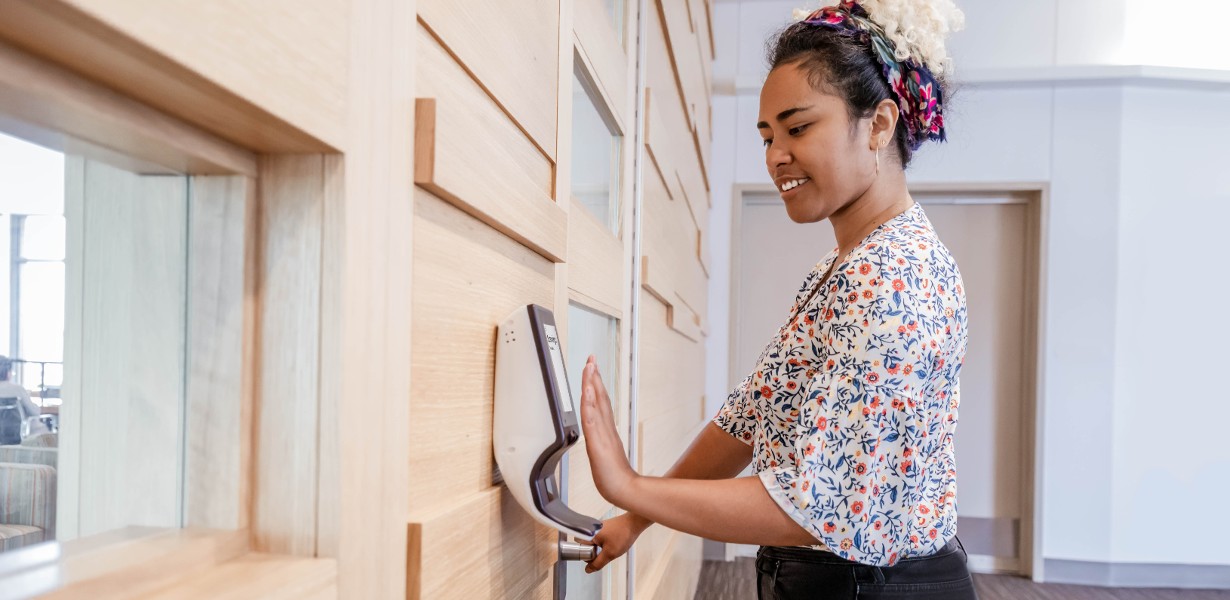
In the modern age, ensuring the privacy and safety of female occupants in dormitories is paramount. Biometric access control systems are revolutionizing the way women-only dorms maintain security and protect the personal space of their residents. In this article, we’ll explore the benefits of biometric access control and how it’s enhancing the dormitory experience for female travelers.
The Need for Enhanced Security
With the increasing demand for female-only dormitories, ensuring the safety and privacy of guests has become a top priority. Traditional security measures have their limitations, and biometric access control offers a robust solution.
The Rise of Female-Only Dormitories
The popularity of female-only dormitories is evident, as more women seek secure and comfortable accommodations. However, providing this sense of security requires advanced access control.
Challenges of Conventional Security
Traditional keys or access cards can be lost, stolen, or duplicated, compromising the safety of occupants. Biometric systems eliminate these vulnerabilities.
Benefits of Biometric Access Control
Biometric access control systems provide several advantages that cater specifically to the needs of female travelers.
Unmatched Security
Biometric systems use unique physical or behavioral traits such as fingerprints, iris scans, or facial recognition, ensuring that only authorized individuals gain access. This level of security is unparalleled.
Convenience and Speed
The process of verification through biometrics is quick and seamless. Residents can access their dorms without fumbling for keys or cards, enhancing convenience.
Non-Transferable
Biometric data is inherently tied to the individual, making it impossible to transfer or duplicate. This non-transferability further boosts security.
Privacy Assurance
Biometric data is stored securely and cannot be accessed or misused by unauthorized parties. This provides peace of mind to residents, knowing that their personal information is protected.
How Biometric Access Control Works
Understanding the operation of biometric access control is crucial in appreciating its efficiency.
Unique Identification
Biometric systems capture and store unique physical or behavioral features of an individual. These features are used for future verification.
Verification Process
When a resident seeks access, the system compares the presented biometric data with the stored information. If they match, access is granted.
Multiple Modalities
Biometric systems can utilize various modalities, such as fingerprint, facial recognition, and iris scans. Dormitories often employ a combination of these for added security.
The Future of Safe and Private Dormitories
Biometric access control is not only transforming the way we secure dormitories but also enhancing the experience of female travelers.
Final Words
Biometric access control is at the forefront of ensuring privacy and safety in female-only dormitories. It offers unmatched security, convenience, and privacy assurance. As these systems become more prevalent in women-only dorms, the future of safe and private accommodations for female travelers is brighter than ever.
Commonly Asked Questions
1. Is my biometric data safe in dormitory systems?
Yes, biometric data is securely stored and cannot be accessed or misused by unauthorized parties, ensuring your privacy.
2. Can I opt-out of using biometric access and use traditional methods?
Many dormitories offer alternative methods for residents who prefer not to use biometrics, ensuring flexibility.
3. Are biometric systems prone to technical glitches or failures?
Modern biometric systems are highly reliable and designed to minimize technical issues. They undergo rigorous testing to ensure consistency.
4. How do biometric systems handle multiple residents entering simultaneously?
Biometric systems are designed to handle multiple entries efficiently, making them suitable for dormitories with a large number of residents.
5. Can biometric access control be hacked?
Biometric systems are extremely difficult to hack due to their unique and non-transferable nature, making them a highly secure option.
Advertisement








